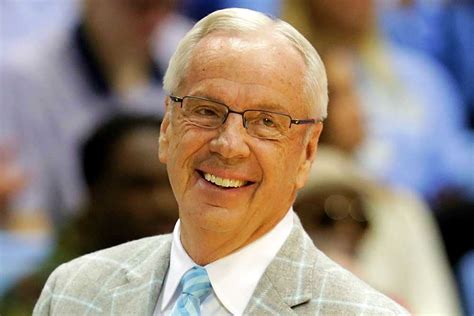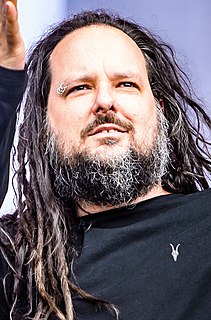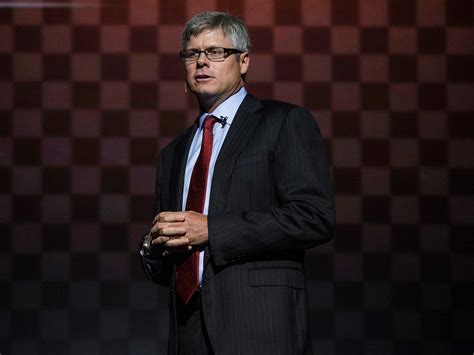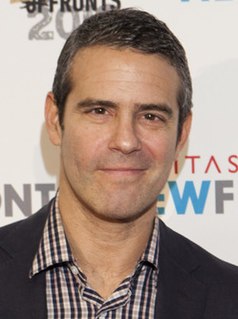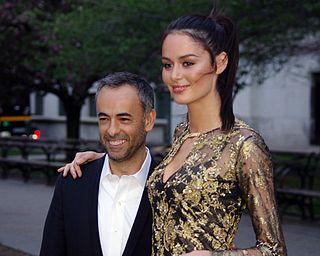Top 261 Portfolio Quotes & Sayings - Page 5
Explore popular Portfolio quotes.
Last updated on April 16, 2025.
The whole movie thing has never been a source of great pride for me, in that Burt Reynolds, who starred in the picture, butchered the original script I had written for the late Steve McQueen, and the result, while a massive moneymaker, was lashed by the critics. But like the old joke about Pierre the Bridge Builder, The Cannonball Run is indelibly inscribed on my so-called career portfolio, and few conversations with strangers pass without the subject of the picture arising.
An index fund is a fund that simply invests in all of the stocks in a market. So, for example, an index fund might invest in every single stock or almost every single stock in the U.S. market, it might invest in every single stock abroad, or it might invest in all of the bonds that are out there. And you can make a perfectly fine investing portfolio that mixes equal parts of all three of those.
Nowhere does it say that investors should strive to make every last dollar of potential profit; consideration of risk must never take a backseat to return. Conservative positioning entering a crisis is crucial: it enables one to maintain long-term oriented, clear thinking, and to focus on new opportunities while others are distracted or even forced to sell. Portfolio hedges must be in place before a crisis hits. One cannot reliably or affordably increase or replace hedges that are rolling off during a financial crisis.
Experience conclusively shows that index-fund buyers are likely to obtain results exceeding those of the typical fund manager, whose large advisory fees and substantial portfolio turnover tend to reduce investment yields. Many people will find the guarantee of playing the stock-market game at par every round a very attractive one. The index fund is a sensible, serviceable method for obtaining the market's rate of return with absolutely no effort and minimal expense.
I think that intelligent forecasting (company revenues, earnings, etc.) should not seek to predict what will in fact happen in the future. Its purpose ought to be to illuminate the road, to point out obstacles and potential pitfalls and so assist management to tailor events and to bend them in a desired direction. Forecasting should be used as a device to put both problems and opportunities into perspective. It is a management tool, but it can never be a substitute for strategy, nor should it ever be used as the primary basis for portfolio investment decisions.
Warren Buffett likes to say that the first rule of investing is "Don't lose money," and the second rule is, "Never forget the first rule." I too believe that avoiding loss should be the primary goal of every investor. This does not mean that investors should never incur the risk of any loss at all. Rather "don't lose money" means that over several years an investment portfolio should not be exposed to appreciable loss of principal.
The optimum portfolio depends on the various expectations of choices available and the degree of variance in performance which is tolerable. The greater the number of selections, the less will be the average year-to-year variation in actual versus expected results. Also, the lower will be the expected results, assuming different choices have different expectations of performance.
Your heart, my friend, is the size of a stadium. If you try to fill it with small things - a new car, a vacation, a promotion at work, a bigger home, a stock portfolio - a mournful echo will fill your life. But if you fill your stadium with all of humanity and search for ways to make their lives better each day, you will find yourself in the right place at the right time, doing the right thing in the right way.
It is obvious that the performance of a stock last year or last month is no reason, per se, to either own it or to not own it now. It is obvious that an inability to "get even" in a security that has declined is of no importance. It is obvious that the inner warm glow that results from having held a winner last year is of no importance in making a decision as to whether it belongs in an optimum portfolio this year.
The powershift began already several years ago, under the Bush administration, when the dollar became very volatile and started declining. That is when China shifted from having almost 100 percent of its reserves in dollars to 75 percent. Some countries went completely out of the dollar. The dollar, for all intents and purposes, lost its special reserve status and people starting talking about a portfolio, or basket, approach as a store of wealth instead of the dollar.
It is tempting to call for better leadership, but we probably expect too much from the leaders of the nations. Those nations are too big, the connections not strong enough, the commitment to the future not long enough. It is better to look smaller, to our now-smaller organisations, to local communities and cities, to families and clusters of friends, to small networks of portfolio people with time to give to something bigger than themselves. We have to fashion our own directions in our own places.
The art of banking is always to balance the risk of a run with the reward of a profit. The tantalizing factor in the equation is that riskier borrowers pay higher interest rates. Ultimate safety - a strongbox full of currency - would avail the banker nothing. Maximum risk - a portfolio of loans to prospective bankrupts at usurious interest rates - would invite disaster. A good banker safely and profitably treads the middle ground.
Nothing highlights better the continuing gap between rhetoric and substance in British financial services than the failure of providers here to emulate Jack Bogle's index fund success in the United States. Every professional in the City knows that index funds should be core building blocks in any long-term investor's portfolio. Since 1976, the Vanguard index funds has produced a compound annual return of 12 percent, better than three-quarters of its peer group.
To invest successfully, you need not understand beta, efficient markets, modern portfolio theory, option pricing or emerging markets. You may, in fact, be better off knowing nothing of these. That, of course, is not the prevailing view at most business schools, whose finance curriculum tends to be dominated by such subjects. In our view, though, investment students need only two well-taught courses - How to Value a Business, and How to Think About Market Prices.
Over the long term, despite significant drops from time to time, stocks (especially an intelligently selected stock portfolio) will be one of your best investment options. The trick is to GET to the long term. Think in terms of 5 years, 10 years and longer. Do your planning and asset allocation ahead of time. Choose a portion of your assets to invest in the stock market - and stick with it! Yes, the bad times will come, but over the truly long term, the good times will win out - and I hope the lessons from 2008 will help get you there to enjoy them.
You know, we've got so much on Bravo and coming up on Bravo, and I think we have so much more going on than 'The Real Housewives.' And I think 'The Real Housewives' is a great, you know, great addition to the portfolio. I think it brings a lot of viewers under our umbrella. And I think they stay and sample other shows.
The strategy we've adopted precludes our following standard diversification dogma. Many pundits would therefore say the strategy must be riskier than that employed by more conventional investors. We disagree. We believe that a policy of portfolio concentration may well decrease risk if it raises, as it should, both the intensity with which an investor thinks about a business and the comfort-level he must feel with its economic characteristics before buying into it.
I didn't even have a portfolio, but I went to Tom Ford the next morning. He said, "I'd love you to come in with me. Get a lawyer." It was quite exciting, obviously, because it was a complete departure. But mind you, what he was looking for was the exact opposite of what I thought. My first collection for him was Cher-inspired. It was flower trousers, California, hippie cool, all the stuff I did at Oscar. It was making me sick. I wanted to see the other side of the spectrum. Tom was always very secure about the way he did things, so it was quite interesting for me.
If Warren Buffett could change his mind about investing in airlines, Mohnish Pabrai could change his mind about investing in autos. Pabrai, who has modeled his investment career and fee structure after Buffett's original partnership, counts General Motors, Fiat Chrysler, and Ferrari in his highly concentrated portfolio.
When you are incubating new ideas, "Don't put all your eggs in one basket" is very good advice. But when you are seeking to transform your enterprise's portfolio by scaling a fledgling business to material size - say ten percent of total enterprise revenue - then it is imperative that you make that the singular focus of everyone in the enterprise for the two to three year period it is likely to require to reach its tipping point. Expecting to do two such scaling efforts in parallel is simply folly, yet that is what the "eggs/basket" idea is often used to justify.






